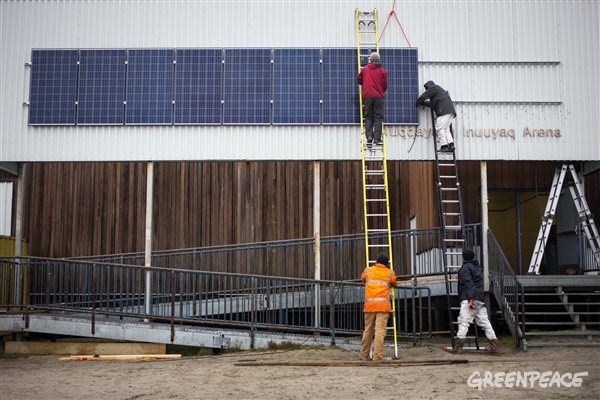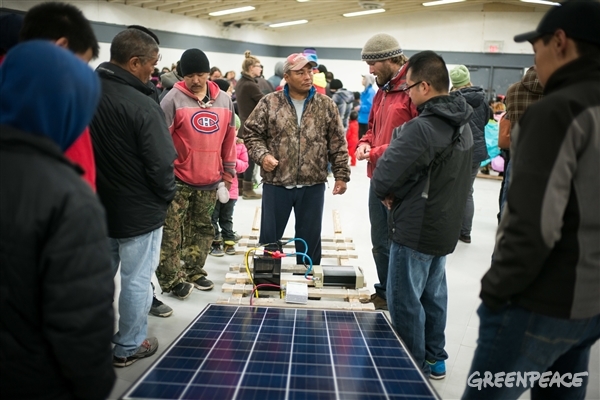Solar in the Arctic at first seems to be an oxymoron. After all, it is dark in the Arctic for nearly half the year. But then again, it’s light for half the year too – just like on the rest of the earth!
When designing a grid-tied solar installation, there is no need to satisfy 100% of electrical needs at all times. When sun is absent, the building can use electricity from the electrical grid. When the sun is shining, the building uses the solar power and feeds any extra to the grid. Under a net-metering setup, which many jurisdictions are now adopting, the building owner is able to sell excess power back to the grid utility. This is not yet a policy in Nunavut, but it is being considered. As a bonus, solar photovoltaic (PV) panels operate more efficiently when cool.

The benefits of solar in the Arctic go beyond cost savings. Because solar panels are relatively user-friendly to install and integrate, photovoltaic solar (PV) can provide economic opportunities for installers. In addition, for communities such as Clyde River, which depend on shipped-in diesel for their power needs, solar will help to cut down on greenhouse gas emissions from fuel combustion.

Installing solar in the Arctic is not without its challenges. The remote location requires careful planning before an installation, and obviously adds significant shipping costs. From a physical standpoint, it can be difficult to find in-town locations that have no shading, since the sun sits so low in the sky. Snow banks and ice can also block panels, so care must be taken when choosing a location.
Because it has not been implemented in many areas of the Arctic, there are also some bureaucratic hurdles in the permitting process for out-of-territory contractors. This is the case when any new industry is developing in a region, but with scale comes streamlining. Most importantly, net metering must be implemented in order for PV system owners to reap the full financial benefit of their investment.
Duncan Martin is a solar installer with the Vancouver Renewable Energy Co-op


